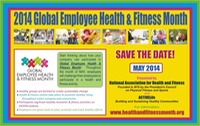There is a growing body of evidence showing obesity raises the risk of various cancers. As many as one-third of common cancers in industrialized nations are linked to excess weight (fat) and lack of physical activity, according to the International Agency for Research on Cancer. Obesity rates leveled off in the U.S. a decade ago due to a decrease in tobacco consumption, but an estimated 68.8% of adults remain at major risk due to obesity and physical inactivity according to the Center for Disease Control.
Childhood obesity is well know to have reached epidemic proportions.
Obesity-related cancers include common ones such as breast and colorectal cancer, as well as less common ones, such as pancreatic cancer. Also included are cancers of the kidney, pancreas, lower esophagus and the uterus, which have increased annually from 1999 through 2008, the latest data available. Excess body fat can also decrease the chance of survival once a patient is diagnosed.
It seems the more our country invests in health research, the fatter and less active our population becomes. Isn't it about time for some accountability?
This report was published on March 28 in the journal Cancer, written by researchers from the Center of Disease Control, the North America Assoc. of Central Cancer Registries, the National Cancer Institute, and the American Cancer Society.
Once again, research shows the power of regular physical activity at appropriate levels of frequency, intensity and duration to protect against the leading causes of premature death and disability in the 21st century. This is not news. It has been reported on over the past two decades, although the relationship between inactivity and obesity is much better known to be associated with cardiovascular and pulmonary diseases.
I recall when Dr. Ken Cooper wrote about the connection between cardiovascular disease and physical inactivity in his best-selling book on Aerobics back in the late 1960's. At that time, he was censored by established public health and medical authorities because they did not believe he had sufficient evidence to support his conclusions. One well-known cardiologist said major professional journal: "If the general public seriously considers Dr. Cooper's exercise recommendations, the streets will be littered with the bodies of those who try to apply them."
Fortunately, the executive director of the President's Council on Physical Fitness and Sports at that time, C. Carson Conrad, ignored the laments of a vocal few and appointed Dr. Cooper as a special medical advisor to the PCPFS. Cooper and I traveled all over the country, along with our regional PCPFS clinic team, to bring the good news that heart disease could be reduced and prevented through regular and appropriate physical activity, enhanced diets, smoking cessation and other sensible lifestyle habits.
These efforts, combined with the inspirational leadership from professional health and physical educators all over the nation, gave birth to a revolution in health promotion and physical fitness during the decades of the '70s and '80s. But sadly, we have drifted backwards as a nation in the battle against degenerative disease.
Exercise three to four times a week for 45 minutes to an hour. Everything else are just details.
— George Sheehan
The tip of the iceberg is the gross increase in obesity among all age groups, regions, racial/ethic origins and social/economic classes. Even more foreboding, school districts all over the country have dropped daily, quality physical education — leaving our nation's youth soaking up their leisure time with TV, computers and other electronic gadgets without any counterbalance. All this is happening with barely a word of resistance from national health promotion, government and professional organizations — not to mention PTAs and school boards who are ultimately responsible for student health and fitness.
Our government agencies study chronic disease more than ever but they don't seem to understand how to apply their scientific findings. If "evidence based science" is the criteria for decision-making with respect to health promotion/disease prevention, we might be better off reducing the budgets of CDC, HHS and NIH and go back to the drawing board. It seems the more our country invests in health research, the fatter and less active our population becomes. Isn't it about time for some accountability? And perhaps the federal and state departments of education might be asked why they do not fully support quality, daily health and physical education?
What is more fundamental and essential to a child's total health and well-being than quality health and physical education?
The late great cardiologist George Sheehan said it best when he told his audiences he had nothing against research, but the American public could learn all they ever needed by the simple exercise formula: "Three to four times a week for 45 minutes to an hour." He would pause and then conclude, "Everything else are just details."
